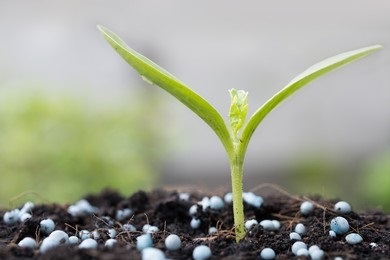
In the context of the continuous development of modern agriculture, the demand for pesticides is increasing worldwide. There are many kinds of pesticides, which can be classified as herbicides, fungicides, insecticides, plant growth regulators, etc. according to their uses, and they play an important role in killing and weeding pests and improving the production of grain, cotton, fruits, and oil. However, the excessive use or even abuse of pesticides has led to serious pesticide residues and soil pollution problems, pesticides have become a class of organic pollutants that affect normal human agricultural activities and health.
When the number of pesticides entering the soil exceeds the environmental capacity of the soil, it will form soil pollution, which will have a serious impact on the soil ecosystem, and also enter the human body through the food chain, causing harm to human health.
Based on the real needs, Lifeasible has established a perfect analytical method for the detection of pesticide residues in soil and sediment, which is important for understanding the contamination status of pesticide residues in soil and sediment and for environmental pollution prevention.
GC-ECD (gas chromatography with electron capture detector) has the advantages of high sensitivity, high separation capacity, accurate quantification, stable instrumentation, good reproducibility, easy operation, and low operating cost, etc. Although GC-MS (gas chromatography-mass spectrometry) has accurate characterization, high selectivity, and low interference, its sensitivity, instrument stability, and reproducibility are not as good as GC-ECD. Therefore, we also use the combination of GC-ECD quantitative and GC-MS qualitative to ensure the accuracy of qualitative and quantitative analysis results.
We use the GC ×GC-μECD (gas chromatography with the microelectron capture detector method) method to detect pesticide residues in soil, which can ensure high sensitivity and solve the problem of limited peak capacity of a single column, thus suitable for the detection of complex matrix samples. And the sensitivity of this detection method is significantly higher than that of GC ×GC-TOFMS (gas chromatography time-of-flight mass spectrometry).
Traditional biosensing techniques, immunoassay techniques, spectrophotometric techniques, and other such methods have the disadvantages of cumbersome pre-processing, low precision, and high cost of use, while fluorescence analysis is highly sensitive, easy to operate and fast to analyze, etc.
The UPLC-MS/MS (ultraperformance liquid chromatography-tandem mass spectrometry) method we established has good specificity, recovery, precision, accuracy, and linearity. And after our optimization, the method is easy to operate, economical and environmentally friendly, and highly sensitive, and can be used to detect various pesticide residues in the soil environment.
Compared with liquid-solid extraction and gel cleanup, the QuEChERS (quick, easy, cheap, effective, rugged and safe) method is simpler, cheaper, greener, and has a wider range of applications with guaranteed recoveries. However, for easily degradable pesticides, the original QuEChERS method cannot achieve the desired results. Therefore, we made some improvements to the original QuEChERS method in terms of extraction and purification methods to achieve automation, batch size, efficiency, and energy saving in the detection of pesticide residues in soil samples.
Lifeasible provides a variety of methods to detect soil pesticide residues, the scope of detection includes but is not limited to fungicides, herbicides, insecticides, etc., covering more than 300 kinds of soil pesticides. We also offer a variety of different testing combinations to meet our customers' needs, please contact our staff for the latest information.
Lifeasible has established a one-stop service platform for plants. In addition to obtaining customized solutions for plant genetic engineering, customers can also conduct follow-up analysis and research on plants through our analysis platform. The analytical services we provide include but are not limited to the following:
STU-CRISPR System Improves Plant Genome Editing Efficiency
April 19, 2024
Application of Exosomes in Facial Beauty
April 12, 2024